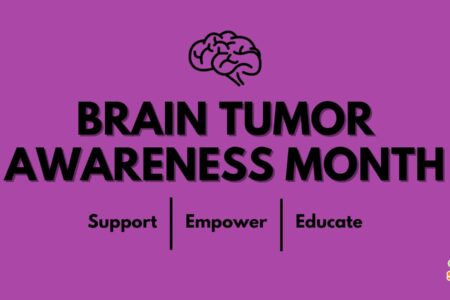
Share On Social!
Editor’s Note: This post is part of an ongoing series that will highlight the Robert Wood Johnson Foundation’s work in Latino communities across the country.

In the early days of his career—and also of the HIV/AIDS epidemic—Gabriel Rincón, DDS, spent part of his dental residency caring for AIDS patients in the final stages of their disease. During the late 1980s and early 1990s, there was not much information being circulated about HIV, particularly in New York City’s Mexican American community, for whom the topics of sex and gender roles were taboo.
“I saw people in my community getting infected with HIV/AIDS, yet there was nothing in Spanish about the disease or how to prevent it,” Rincón said.
So Rincón developed a culturally sensitive presentation to educate Mexican Americans and other Latinos about HIV, its signs and symptoms, how it is spread, and how it can be prevented. He bought an overhead projector and traveled to restaurants, factories, and churches to give his presentation. “I talked to anyone who would listen,” Rincón said. His efforts led him to launch Mixteca Organization, Inc., which provides health and education programs to thousands of Latino New Yorkers each year.
For his undaunted quest to educate and support Latino immigrants in need, Rincón has been named one of 10 recipients of the Robert Wood Johnson Foundation Community Health Leaders Award. The award honors exceptional men and women who have overcome significant obstacles to tackle some of the most challenging health and health care problems facing their communities.
After a year of making his presentation on HIV/AIDS, it became clear to Rincón that his community also was severely affected by heart disease and diabetes, so he started to educate about those issues as well. He found himself helping Latino immigrants get access to basic health care. Nearly a decade later, in 2000, someone suggested that he turn his work into a nonprofit organization.
Today, in addition to offering a broad range of health education programs, Rincón’s Mixteca provides literacy and computer classes, English language courses, and after-school programs. “A young man we worked with just graduated from the Rochester Institute of Technology. In order to be healthy, you have to be educated,” Rincón said.
Originally from Puebla, Mexico, Rincón was 17 years old when he came to the United States in 1972. “My family was very poor but I wanted to study, so I thought I could find a better life in the United States,” said Rincón, who found himself working as a dishwasher until immigration sent him back to Mexico. He became a dentist while in Mexico, learned English by reading Ian Fleming’s popular James Bond books, and then came back to the United States in 1984. “Sometimes things happen in life for a reason,” said Rincón, who had to repeat dental school in the United States before being allowed to practice here, and who continues to practice dentistry in Brooklyn.
Community Health Leaders National Program Director Janice Ford Griffin said that the selection committee honored Rincón for his compassion and commitment to tackling culturally sensitive health issues. “Dr. Rincón is incredibly committed to assuring access to quality health care, especially for Mexican Americans, in spite of the enormous impediments and barriers presented by language and a climate of fear and hostility they encounter on a daily basis. His collaborative leadership has provided a base for education, referral, and direct services that has influenced the lives of families that extend far beyond the Brooklyn neighborhood,” Griffin said.
Although based in Brooklyn, Mixteca serves people from all over New York City, including the Bronx, Manhattan, and Queens. “We no longer have to seek out people to help,” Rincón said. “We have proven ourselves to be a trusted community partner. Everything we do is confidential, so people come to us.” In 2010, Rincón, who also serves as a member of the board of trustees of Lutheran Medical Center, started to tackle another big taboo in his community—domestic violence.
Larry McReynolds, executive director of the Lutheran Family Health Centers in Brooklyn, said that Rincón’s dedication has resulted in measurable improvement in community health, especially in Brooklyn’s Sunset Park neighborhood, where Mixteca is based. “Gabriel Rincón’s passion for improving health outcomes for the immigrant population of Sunset Park is a tribute to his dedication and leadership at Mixteca,” McReynolds said. “In 2009 alone, Mixteca provided four community health fairs, 20 community health workshops, 305 referrals to free or affordable health care, 332 HIV rapid tests, and 4,000 health screenings. None of that would have been possible without Gabriel Rincón.”
RWJF has honored more than 190 Community Health Leaders since 1993. The work of the nine other 2011 recipients includes a project to help people with disabilities safely and confidently handle routine medical exams in Delaware; a transportation and support program for families with children battling cancer in San Diego; a community initiative to ensure access to medical care in the Kansas farm belt; a campaign for early detection and treatment of breast cancer for uninsured and underserved women in Miami; a nurse training program for disadvantaged Hawaiian students; a home health aide service for elderly Asian Americans in suburban Philadelphia; a rural community health outreach program in the Delta region of Arkansas; an anti-hunger and nutrition program in New Brunswick, N.J.; and health care for the working poor in Altoona, Pa.
For details, visit www.communityhealthleaders.org.
Explore More:
Healthy Families & SchoolsBy The Numbers
142
Percent
Expected rise in Latino cancer cases in coming years



